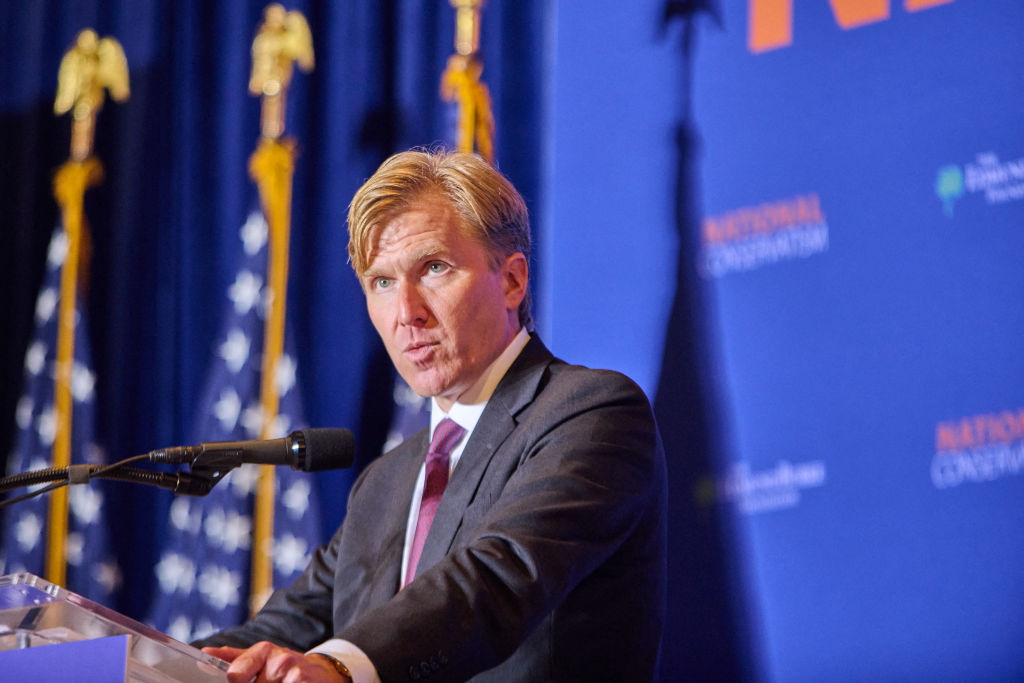As President-elect Donald Trump continues to nominate candidates to serve in his next administration, one name could indicate the direction of America’s foreign policy during his second presidency. Elbridge Colby, who wrote the National Defense Strategy in 2018, has now been picked to be the next Undersecretary of Defense for Policy, vowing to “focus our defense policy on restoring peace through strength and always putting America first”.
A Deputy Assistant Secretary of Defense in Trump’s first term, Colby is popular with conservative realists for his scepticism of foreign military entanglements. Conversely, others on the Right fear that Colby is too dovish towards Iran. Nonetheless, he is undoubtedly accomplished, not to mention aligned with Trump’s foreign policy instincts. The Undersecretary of Defense for Policy is responsible for developing Pentagon strategy, and Colby’s writing and public statements provide an insight as to where he will focus his energies: namely, China.
Colby believes that the military threat posed by Beijing is far more potent and concerning than is generally understood in Washington. In turn, he argues that US military resources need to be redeployed from Europe and the Middle East to the Pacific in order to better deter China. American military resources, especially naval resources, are currently spread too thin; amid an inadequate defence industrial base which produces warships far too slowly and expensively, this overstretch is increasing maintenance delays and crew exhaustion. At the same time, the People’s Liberation Army is ramping up its production of highly capable missiles and warships, demonstrating the likelihood that the US military would lose a war over Taiwan.
In tandem with Trump’s push for European allies to spend more on defence, an argument that Colby has made repeatedly, we should therefore expect fewer high-end naval and air force deployments on the continent. This should not be a great concern for European governments, which have traditionally preferred the Americans to carry the expensive weight of deterrence activities related to Russia. Because of Moscow’s increasingly sophisticated nuclear ballistic missile submarine forces, however, the US Navy will maintain submarine deployments in European waters under Trump. If Europe is to reach one conclusion from Colby’s appointment, it is that its leaders should invest significantly and immediately in refuelling and transport aircraft, and boost support for Ukraine.
While some claim that giving Colby a top Defense brief will lead to an abandonment of US support for Ukraine, this concern is arguably overstated. Though he has lobbied for a more cautious provision of US military aid to Ukraine, the incoming administration is likely to recognise that this aid is its primary lever of influence towards Russian concessions in future peace negotiations. Still, Colby’s appointment does emphasise that Trump wants to put intellectual weight behind his argument that Europe must do much more for its own security. The same principle applies to other allies such as Taiwan and Japan, which Colby has argued must also significantly increase defence spending.
Though he is outspoken on social media, US allies will find a good partner in Colby. I know from personal experience that he is willing to engage in serious and respectful debate. He has strong views but also a sustaining interest in productive dialogue. He will further a Trump defence policy that seeks to avoid conflict wherever possible, while pursuing urgent preparations for war of a kind not seen since 1945.











Join the discussion
Join like minded readers that support our journalism by becoming a paid subscriber
To join the discussion in the comments, become a paid subscriber.
Join like minded readers that support our journalism, read unlimited articles and enjoy other subscriber-only benefits.
Subscribe